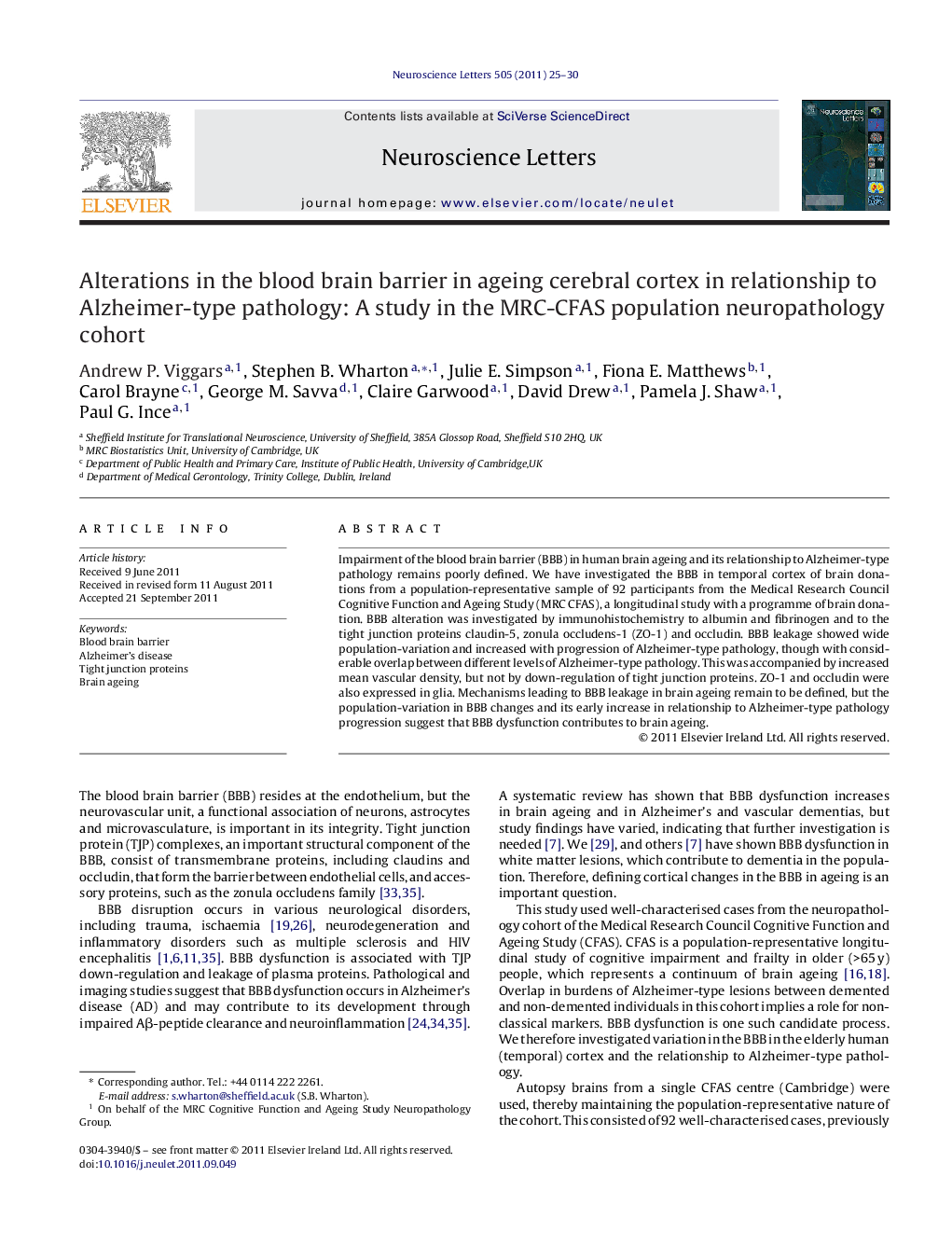| Article ID | Journal | Published Year | Pages | File Type |
|---|---|---|---|---|
| 4344878 | Neuroscience Letters | 2011 | 6 Pages |
Impairment of the blood brain barrier (BBB) in human brain ageing and its relationship to Alzheimer-type pathology remains poorly defined. We have investigated the BBB in temporal cortex of brain donations from a population-representative sample of 92 participants from the Medical Research Council Cognitive Function and Ageing Study (MRC CFAS), a longitudinal study with a programme of brain donation. BBB alteration was investigated by immunohistochemistry to albumin and fibrinogen and to the tight junction proteins claudin-5, zonula occludens-1 (ZO-1) and occludin. BBB leakage showed wide population-variation and increased with progression of Alzheimer-type pathology, though with considerable overlap between different levels of Alzheimer-type pathology. This was accompanied by increased mean vascular density, but not by down-regulation of tight junction proteins. ZO-1 and occludin were also expressed in glia. Mechanisms leading to BBB leakage in brain ageing remain to be defined, but the population-variation in BBB changes and its early increase in relationship to Alzheimer-type pathology progression suggest that BBB dysfunction contributes to brain ageing.
► This paper investigates the blood brain barrier in a population representative ageing brain cohort from the MRC cognitive function and ageing study. ► There is population-variation in blood brain barrier leakage, determined by immunohistochemistry for albumin. ► Blood brain barrier leakage was seen at early stages of Alzheimer-type pathology and increased with increasing Alzheimer-type pathology. ► Blood brain barrier leakage was not accompanied by down-regulation of tight junction proteins.
